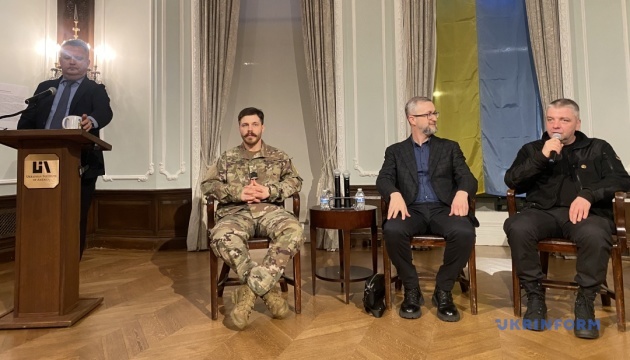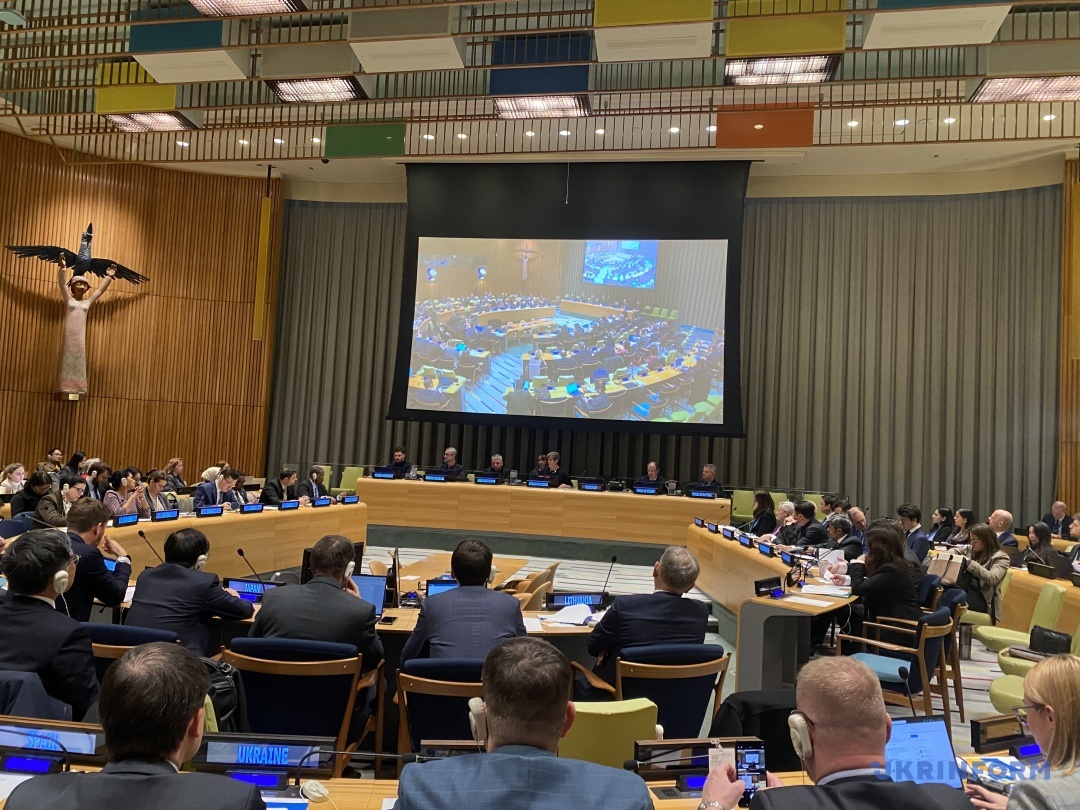
Former Ukrainian prisoners tell UN about their detention in Russia
Three former prisoners of war, Valerii Horishnii, Nariman Dzhelial, and Maksym Butkevych, shared their experiences of being held in Russian prisons and called on members of the UN Security Council to take all possible measures to free illegally detained Ukrainian citizens in Russia.
According to an Ukrinform correspondent, an informal Arria-formula meeting of the UN Security Council took place on Monday, focusing on Russia’s violations of international humanitarian law regarding Ukrainian prisoners of war and detained civilians.

Valerii Horishnii, a National Guard instructor, said he had participated in the defense of Mariupol in 2022 before being taken prisoner.
He described the severe treatment of Ukrainian prisoners, including soldiers of the Azov Brigade, who are subjected to Russian "trials" and sentenced to long prison terms, often life imprisonment, for defending their homeland.
"This includes cruel, inhumane treatment, brutal beatings, sometimes resulting in death, the use of electric shocks, and other forms of torture," Horishnii stated.
He added that prison guards often "enjoy torturing people."
"For long months, we received only ten spoonfuls of porridge and approximately 150 grams of bread per day," he said.
Horishnii recounted the explosion at Olenivka prison on the night of July 28–29, which killed 53 prisoners.
"We strongly urge you to make every effort to facilitate the exchange of prisoners of war," Horishnii appealed to UN member states.
Nariman Dzhelial, a Crimean Tatar activist sentenced to 17 years in prison by the so-called "Supreme Court of Crimea," spent three years in jail for publicly opposing Russia’s occupation of Crimea.
"I lived and worked in occupied Crimea," Dzhelial noted. "As a result of illegal and politically motivated persecution by the Russian occupation authorities, many activists and journalists, including myself, were arrested."
He described how criminal cases were fabricated against them, with torture and cruel treatment used.
"Political prisoners in Russia are deprived of justice, unable to defend themselves," he said.
Dzhelial shared his personal ordeal: "I personally experienced many trials typical of political prisoners — poor nutrition, lack of medical care, moral and physical humiliation, harassment... I was beaten, insulted, and forced to learn and sing the Russian anthem, but I refused."
He stated that Russia is currently holding at least 218 Crimean political prisoners, 132 of whom are Crimean Tatars, demonstrating targeted persecution of the indigenous population.
"But this is only the tip of the iceberg," he added. "Thousands of Ukrainian citizens in Crimea have become victims of political repression, and thousands have fled their homeland."
Maksym Butkevych, a human rights defender and serviceman sentenced to 13 years in a strict-regime colony in Russia, is a senior lieutenant in the 210th Separate Assault Regiment.
Butkevych joined the Armed Forces of Ukraine after the full-scale invasion and was captured in June 2022, spending two years and four months in captivity.
He recounted being beaten by a Russian officer who demanded he repeat Putin's statements about "the history of Ukraine."
"We were humiliated, threatened, and forced to shout, 'Glory to Russia,'" Butkevych said.
He was eventually forced to choose: "Either I signed a confession to war crimes, which would allow them to sentence me and then exchange me, or I refused, and they would make my life a living hell or simply shoot me."
Butkevych signed the papers without being allowed to read them, after which he was convicted of "violating the Geneva Conventions."
"I urge you to do everything possible and necessary to ensure the swift release of Ukrainian prisoners of war and illegally detained civilians," Butkevych appealed to UN member states. "In the meantime, create an appropriate independent international mechanism to monitor detention facilities."
Earlier, Pablo de Greiff, a member of the UN's Independent International Commission of Inquiry on Russia's War Crimes in Ukraine, described the torture of Ukrainian prisoners in Russian prisons during Monday’s informal Security Council meeting.
